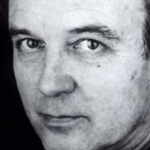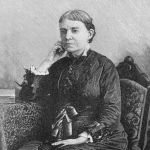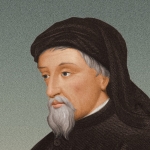Fingers:
Cramped, you are hardly anything but fidgets.
We, active, differentiate the digits:
Whilst you are merely little toe and big
(Or, in the nursery, some futile pig)
Through vital use as pincers there has come
Distinction of the finger and the thumb;
Lacking a knuckle you have sadly missed
Our meaningful translation to a fist;
And only by the curling of that joint
Could the firm index come to have a point.
You cannot punch or demonstrate or hold
And therefore cannot write or pluck or mould:
Indeed, it seems deficiency in art
Alone would prove you the inferior part.
Toes:
Not so, my friends. Our clumsy innocence
And your deft sin is the main difference
Between the body’s near extremities.
Please do not think that we intend to please:
Shut in the dark, we once were free like you.
Though you enslaved us, are you not slaves, too?
Our early balance caused your later guilt,
Erect, of finding out how we were built.
Your murders and discoveries compile
A history of the crime of being agile,
And we it is who save you when you fight
Against the odds: you cannot take to flight.
Despite your fabrications and your cunning,
The deepest instinct is expressed in running.


















Comment form: